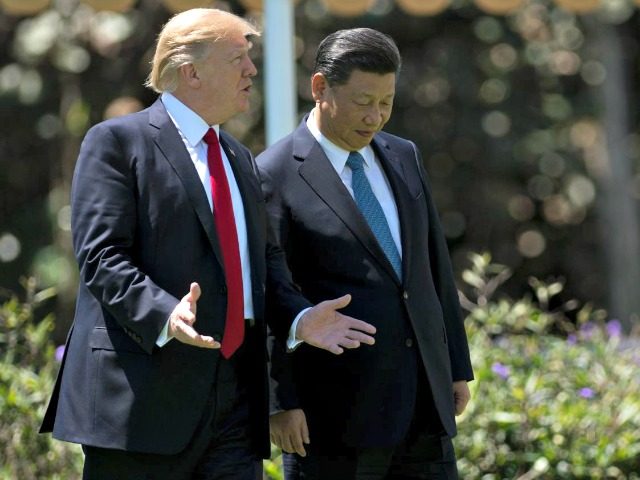President Donald Trump said Sunday that he will hike the tariffs on $200 billion of imports from China to 25 percent from 10 percent on Friday.
“The Trade Deal with China continues, but too slowly, as they attempt to renegotiate. No!” the president tweeted.
The U.S. currently charges a 10 percent duty on those goods. The U.S. charges a 25 percent tariff on a $50 basket of mostly high-tech goods made in China.
Trump also said that he would soon impose a 25 percent tariff on an additional $325 billion of Chinese goods that have not yet been subject to the higher duties.
….of additional goods sent to us by China remain untaxed, but will be shortly, at a rate of 25%. The Tariffs paid to the USA have had little impact on product cost, mostly borne by China. The Trade Deal with China continues, but too slowly, as they attempt to renegotiate. No!
— Donald J. Trump (@realDonaldTrump) May 5, 2019
Trump’s tweets essentially end the so-called trade truce that has been in effect since December, when the president agreed with his Chinese counterpart to hold off on higher tariffs while the two nations negotiated a trade deal. The U.S. has sought a number of reforms from China, including some that demand fundamental changes to the way the Chinese government manages its economy, such as the end of subsidies to Chinese ‘national champions’ and ending the requirements that U.S. companies partner with Chinese companies when they do business in the Asian nation.
Negotiators from both the U.S. and China have been meeting for months, both in Washington, DC, and Beijing. Recently, officials from both nations have said that the talks are in their final stages. U.S. officials, including the president, have often said that while the talks have been going well it was still possible a deal would not be struck.
Several sticking points have emerged in recent talks, the most recent of which concluded last week in Beijing. China has demanded that the U.S. immediately remove the current tariffs, while U.S. officials have insisted that the tariffs must remain in place while they monitor Chinese reforms. Instead, U.S. officials would strike a deal that would prevent tariffs from going higher.
Chinese officials have surprised U.S. negotiators by appearing to backtrack on several points that the U.S. thought had already been agreed to, including steps to crack down on cyber-hacking and state-subsidies to companies owned partly or wholly by the Chinese government, according to people familiar with the matter. Trump administration officials believe that China’s own nationalists have pushed back on some of the terms agreed by its trade negotiators, arguing that they would be humiliating to China and its leader, Xi Jinping.
China’s nationalists are also pushing back against the basic enforcement mechanism that was proposed by U.S. officials and that several U.S. officials had thought China was close to agreeing to. Under this plan, the U.S. would be able to impose tariffs unilaterally if it found China was not complying with the terms of the deal and China would not be able to retaliate or file complaints with the World Trade Organization. China’s nationalists view this as an unacceptable surrender of Chinese sovereignty.
Trump’s announcement of the higher tariffs comes at a crucial time, just before what had been billed as a penultimate round of talks between the U.S. and are set to resume Wednesday in Washington, DC.

COMMENTS
Please let us know if you're having issues with commenting.